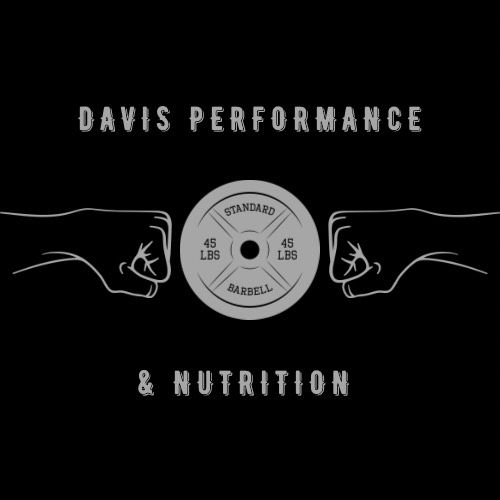Strength and Conditioning Blog of Blogs

Nutrition Decoded - Maximizing Men's Health Through Balanced Eating
“The last three or four reps is what makes the muscle grow. This area of pain divides a champion from someone who is not a champion.” – Arnold Schwarzenegger
Introduction:
Over the years, nutrition has become an increasingly crucial aspect of men's health. The food we eat not only provides us with energy but also plays a significant role in preventing chronic diseases and maintaining overall well-being. In this blog post, we will examine into the world of nutrition and discuss how balanced eating can maximize men's health. By decoding the mysteries of nutrition and understanding the importance of a balanced diet, men can take control of their health and unleash their full potential.
Key Takeaways:
Protein is vital: Good nutrition for men over 40 and the need for protein to build and repair tissues, so be sure to include sources like lean meats, poultry, fish, eggs, dairy, legumes, and nuts in your diet.
Healthy fats are key: Including sources of healthy fats like avocados, olive oil, nuts, and seeds can help lower the risk of heart disease and support overall health.
Limit processed foods: Minimize consumption of processed foods high in added sugars, unhealthy fats, and sodium, as they can contribute to health issues like obesity, diabetes, and heart disease.
Stay hydrated: Adequate hydration is crucial for overall health, so drink plenty of water throughout the day and limit sugary drinks and excessive caffeine intake.
Balance is key: Aim for a variety of foods from all food groups to ensure you are getting a wide range of nutrients important for optimal health and well-being.
1. Balanced diets are crucial for men's optimal health. 2. Include lean proteins, whole grains, and fruits in meals. 3. Limit intake of processed foods and sugars. 4. Stay hydrated with plenty of water daily. 5. Prioritize nutrient-dense foods for overall well-being. 6. Consistency is key for long-term health benefits.

Macronutrients: The Building Blocks of Diet
Proteins: Function and Sources
One of the basic macronutrients, proteins play a crucial role in the body's growth, repair, and maintenance. They are made up of amino acids, which serve as the building blocks for muscles, organs, and tissues. Sources of proteins include meat, fish, dairy, legumes, nuts, and seeds.
Carbohydrates: Types and Their Role in Energy
One of the primary sources of energy for the body, carbohydrates come in two main types - simple and complex. Simple carbohydrates, found in fruits and sweets, provide quick energy boosts, while complex carbohydrates, found in whole grains and vegetables, offer sustained energy levels. Knowing the difference between the two is key to maintaining stable energy levels throughout the day.
For more detailed information on carbohydrates and their role in energy, refer to the table below:
Type Food Sources
Simple Carbohydrates: Fruits, candies, soda
Complex Carbohydrates: Whole grains, vegetables, legumes
Glycemic Index: High (Simple) vs. Low (Complex)
Energy Release: Quick vs. Sustained
Fiber Content: Low vs. High
Fats: Good vs. Bad Fats and Their Impact on Health
Impact
Fats, the most calorie-dense macronutrient, can be divided into good and bad fats based on their effects on health. Good fats, such as those found in avocados and nuts, can improve heart health and brain function, while bad fats, like trans fats, increase the risk of heart disease and obesity. For instance, consuming foods high in trans fats should be avoided as they have been linked to an increased risk of cardiovascular diseases. This can have an impact on the cardiovascular health for men over 40.
For more insights into the effects of good and bad fats on health, see the table below:
Fat Type Health Impact
Good Fats (Monounsaturated, Polyunsaturated): Improves Heart Health, Brain Function
Bad Fats (Trans Fats): Increases Risk of Heart Disease, Obesity
Sources: Avocados, nuts vs. Processed foods, fried foods
Recommended Intake: Moderate vs. Limit/avoid
Effects on Cholesterol Levels: Raises HDL ("good") vs. Raises LDL ("bad")
Micronutrients: Vitamins and Minerals Essential for Men's Health
Key Vitamins and Their Functions
To maximize men's health, it is crucial to ensure adequate intake of key vitamins that play imperative roles in various bodily functions. Vitamin D is vital for bone health, immune function, and testosterone production. Vitamin B12 supports nerve function and red blood cell production, while Vitamin C is crucial for immune support and collagen production. Vitamin E acts as an antioxidant, protecting cells from damage.
Essential Minerals for Optimal Men's Health
Any well-rounded diet for men should include imperative minerals that are vital for optimal health and wellbeing. Zinc plays a key role in immune function, testosterone production, and sperm quality. Magnesium is imperative for muscle and nerve function, blood sugar regulation, and bone health. Iron is important for oxygen transport in the blood and overall energy levels.
The inclusion of minerals like zinc, magnesium, and iron in the diet is crucial for men's health as deficiencies can lead to various health issues. Zinc deficiency can result in decreased immune function and low testosterone levels, while low magnesium levels may contribute to muscle cramps and fatigue. Iron deficiency can lead to anemia, causing fatigue and weakness.
Dietary Patterns and Men's Health
Plant-Based Diets and Their Benefits
Many men are opting for plant-based diets due to the numerous health benefits they offer. Plant-based diets are rich in fiber, vitamins, minerals, and antioxidants while being low in saturated fats. These diets have been linked to a lower risk of obesity, heart disease, and certain types of cancer. By focusing on whole grains, fruits, vegetables, legumes, nuts, and seeds, men can improve their overall health and well-being.
The Mediterranean Diet and Its Role in Chronic Disease Prevention
Mens, The Mediterranean diet is often hailed as one of the healthiest dietary patterns for men. This diet emphasizes consuming plenty of fruits, vegetables, whole grains, nuts, seeds, and healthy fats like olive oil. Research has shown that following the Mediterranean diet can reduce the risk of heart disease, stroke, type 2 diabetes, and even Alzheimer's disease. Incorporating lean protein sources like fish and poultry, as well as moderate red wine consumption, further contribute to its health benefits.
For additional benefits, men can also include regular physical activity and a focus on mindful eating practices while following the Mediterranean diet. This approach can help in weight management, improving energy levels, and reducing inflammation in the body. The Mediterranean diet is not just a diet but a lifestyle that promotes overall well-being and longevity for men.
Practical Eating Strategies for Men
Meal Planning and Preparation for Busy Lifestyles
Your schedule may be hectic, but that doesn't mean your nutrition needs to suffer. Practical meal planning and preparation can help you stay on track with your health goals. Dedicate a few hours each week to plan your meals, create a shopping list, and prep ingredients in advance. This way, you can easily put together healthy and balanced meals, even on the busiest of days.
Nutrition Myths and How to Avoid Common Pitfalls
An understanding of nutrition myths can help you make informed choices about your diet. Common pitfalls to avoid include believing that cutting out entire food groups is necessary for weight loss, falling for fad diets promising quick fixes, and thinking that supplements can replace a balanced diet. Keep in mind, a varied diet rich in whole foods is key for optimal health.
Strategies to avoid falling into the trap of nutrition myths include staying informed by following credible sources for nutrition information, questioning sensationalized headlines, and consulting with a registered dietitian for personalized guidance. By arming yourself with accurate knowledge, you can make empowered decisions about your nutrition and overall well-being.
Conclusion
Hence, understanding the importance of balanced eating and proper nutrition is crucial for maximizing men's health. By decoding the complexities of nutrition and focusing on incorporating a variety of nutrients into their diets, men can support their overall well-being and reduce their risk of various health conditions. Making mindful food choices, staying hydrated, and maintaining a balanced diet rich in fruits, vegetables, lean proteins, whole grains, and healthy fats are key components to promoting optimal health and longevity. Prioritizing good nutrition and making informed decisions about what they eat can empower men to take control of their health and lead healthier, more fulfilling lives.
FAQ
Q: Why is balanced nutrition important for men's health?
A: Balanced nutrition is crucial for men's health as it provides the necessary nutrients for optimal bodily functions, energy levels, and disease prevention.
Q: What are the key nutrients that men should focus on in their diet?
A: Men should focus on consuming adequate amounts of protein, healthy fats, vitamins (especially vitamin D), minerals (such as zinc and magnesium), and fiber for optimal health.
Q: How can men ensure they are getting a balanced diet?
A: Men can ensure they are getting a balanced diet by including a variety of nutrient-dense foods such as whole grains, lean proteins, fruits, vegetables, and healthy fats in their meals.
Q: Are there specific dietary guidelines that men should follow for their health?
A: Yes, men should follow dietary guidelines such as consuming enough water, limiting processed foods, sugar, and alcohol intake, and monitoring portion sizes to maintain a healthy weight.
Q: What are some common myths about men's nutrition that need to be debunked?
A: Common myths about men's nutrition include the belief that protein supplements are necessary for muscle gain, that all fats are bad for health, and that skipping meals is an effective way to lose weight. It is important to consult a registered dietitian or nutritionist for personalized advice based on individual health needs.



Facebook
LinkedIn
Instagram